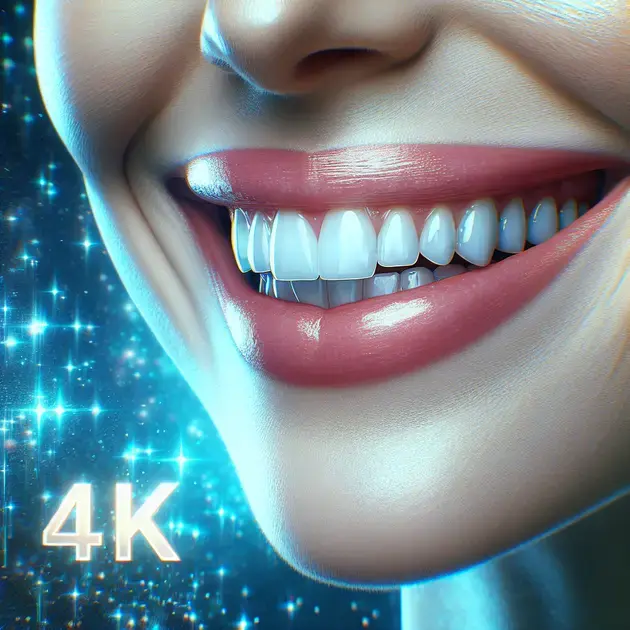When it comes to maintaining overall health, one often overlooked aspect is oral hygiene. A bright and healthy smile not only boosts confidence but also plays a crucial role in preventing various health issues.
Recent studies have shown a strong correlation between oral health and overall well-being. In fact, poor oral hygiene can lead to a higher risk of heart disease and other serious conditions. Therefore, it’s essential to prioritize dental care to achieve a bright and healthy smile.
The Importance of Oral Hygiene
Oral hygiene is crucial for maintaining overall health and preventing various dental issues such as cavities and gum disease. To ensure proper oral hygiene, it is essential to follow a regular dental care routine. Here is a step-by-step guide to help you maintain good oral hygiene:
1. Brushing:
Brush your teeth at least twice a day using fluoride toothpaste. Make sure to brush all surfaces of your teeth and along the gumline. Use a soft-bristled toothbrush and replace it every three to four months.
2. Flossing:
Regular flossing is essential to remove food particles and plaque from between the teeth. Use a piece of dental floss to clean between each tooth, making a C shape around the tooth to ensure thorough cleaning.
3. Mouthwash:
Using antimicrobial mouthwash can help reduce bacteria in the mouth and freshen breath. Rinse with mouthwash after brushing and flossing to reach areas that may be missed by your toothbrush.
4. Regular Dental Check-ups:
Visit your dentist for regular check-ups and professional cleanings. Your dentist can detect any early signs of dental issues and provide appropriate treatment to maintain your oral health.
5. Healthy Diet:
Eating a balanced diet rich in fruits, vegetables, and calcium is beneficial for your oral health. Limit sugary and acidic foods and drinks that can contribute to tooth decay.
Effective Strategies for a Bright Smile
A bright smile not only boosts confidence but also indicates good oral health. Implementing effective strategies can help you achieve and maintain a bright smile. Here are some tips to enhance the brightness of your smile:
1. Teeth Whitening:
Consider professional teeth whitening treatments offered by dentists or over-the-counter whitening products. These treatments can help remove stains and discoloration, giving you a brighter smile.
2. Good Oral Hygiene Habits:
Maintaining good oral hygiene through regular brushing, flossing, and dental check-ups is essential for a bright smile. Clean teeth are less likely to develop stains and discoloration.
3. Avoid Staining Foods and Drinks:
Limit consumption of coffee, tea, red wine, and other staining foods and drinks that can dull the brightness of your smile. Rinse your mouth with water after consuming such items to reduce staining.
4. Dental Veneers:
If you have severe discoloration or imperfections on your teeth, consider dental veneers as a cosmetic solution. Veneers can cover up imperfections and provide a bright, uniform smile.
5. Professional Cleaning:
Schedule regular professional cleanings with your dentist to remove surface stains and plaque buildup. Professional cleanings can help maintain the brightness of your smile.
Tips for Maintaining Oral Health
Maintaining good oral health is essential for overall well-being and a confident smile. Incorporating simple yet effective tips into your daily routine can help you preserve your oral health. Here are some tips to maintain optimal oral health:
1. Drink Water:
Stay hydrated by drinking water throughout the day. Water helps rinse away food particles and bacteria from the mouth, reducing the risk of cavities and gum disease.
2. Chew Sugar-Free Gum:
Chewing sugar-free gum after meals can stimulate saliva production, which helps neutralize acids and strengthen tooth enamel. Opt for gum with xylitol for additional dental benefits.
3. Quit Smoking:
Smoking and tobacco use can lead to various oral health issues, including stained teeth, gum disease, and oral cancer. Quitting smoking can significantly improve your oral health.
4. Protect Your Teeth:
Wear a mouthguard during sports activities to prevent dental injuries. Avoid using your teeth as tools to open packages or bite on hard objects that can damage your teeth.
5. Stress Management:
Stress can contribute to teeth grinding and jaw clenching, leading to dental problems. Practice stress-reducing techniques such as meditation and exercise to protect your oral health.
Brighten Your Smile with These Dental Care Tips
Having a bright and healthy smile is a goal for many people, and proper dental care plays a crucial role in achieving it. There are several simple yet effective tips that can help you improve the brightness of your smile. Firstly, maintaining good oral hygiene practices such as brushing your teeth twice a day and flossing regularly can prevent staining and discoloration. Additionally, using whitening toothpaste or seeking professional teeth whitening treatments can also enhance the brightness of your smile.
Another important aspect of dental care for a bright smile is watching your diet. Consuming foods and beverages that are high in sugar and acids can contribute to tooth decay and discoloration. It’s essential to limit your intake of these items and opt for healthier alternatives. Drinking plenty of water and eating foods rich in vitamins and minerals can promote overall dental health and keep your smile looking bright.
Regular visits to the dentist are key to maintaining a bright smile. Dental checkups not only help prevent and detect oral issues early on, but they also include professional cleanings that can remove surface stains and plaque buildup. Your dentist can provide personalized recommendations and treatments to address any concerns you may have about the brightness of your smile.
In conclusion, following these dental care tips diligently can significantly enhance the brightness of your smile. By practicing good oral hygiene, watching your diet, and attending regular dental checkups, you can achieve a radiant and healthy smile that boosts your confidence and overall well-being.
The Link Between Diet and Dental Health
The connection between diet and dental health is well-established, as the foods and beverages we consume have a direct impact on the condition of our teeth and gums. A diet high in sugar and acids can lead to tooth decay, cavities, and gum disease. On the other hand, a balanced and nutritious diet can support optimal dental health and help prevent oral issues.
When it comes to maintaining dental health through diet, it’s important to be mindful of the foods you eat. Avoiding sugary snacks and drinks can significantly reduce the risk of cavities and enamel erosion. Instead, focus on incorporating foods that are rich in calcium, vitamin C, and other essential nutrients that support strong teeth and gums.
Certain beverages, such as wine, can also impact dental health. Red wine, for example, contains tannins that can stain teeth, while white wine is acidic and can weaken enamel. It’s recommended to consume wine in moderation and rinse your mouth with water after drinking to help minimize the effects on your dental health.
In summary, maintaining a healthy diet plays a vital role in supporting good dental health. By making conscious choices about the foods and beverages you consume, you can help protect your teeth and gums from decay and disease, promoting a bright and healthy smile for years to come.
How Regular Dental Checkups Improve Your Overall Health
Scheduling regular dental checkups is not only important for maintaining oral health but also for improving your overall well-being. During a dental visit, your dentist can assess the condition of your teeth and gums, identify any issues early on, and provide necessary treatments to prevent further complications.
In addition to addressing oral health concerns, regular dental checkups can have a positive impact on your overall health. Poor oral health has been linked to various systemic conditions, including heart disease, diabetes, and respiratory infections. By maintaining good oral hygiene and attending regular checkups, you can reduce the risk of developing these health issues.
Furthermore, dental checkups often include screenings for oral cancer, providing an opportunity for early detection and treatment. Your dentist can examine your mouth for any signs of abnormalities or lesions that may indicate the presence of oral cancer, allowing for prompt intervention and improved outcomes.
In conclusion, prioritizing regular dental checkups can significantly improve your overall health by ensuring proper oral care and early detection of potential health issues. By partnering with your dentist and following their recommendations for dental maintenance, you can support both your oral health and your general well-being.
Conclusion
Ensuring a bright and healthy smile requires dedicated dental care practices that can significantly impact the overall appearance and well-being of your teeth and gums. By following simple yet effective tips such as maintaining good oral hygiene routines like brushing twice a day and flossing regularly, you can prevent staining and discoloration, ultimately enhancing the brightness of your smile. Additionally, incorporating whitening toothpaste or professional treatments can further contribute to achieving a radiant smile.
The link between diet and dental health is undeniable, as the foods and drinks we consume directly influence the condition of our oral cavity. Opting for a balanced and nutritious diet, rich in essential nutrients like calcium and vitamin C, can support optimal dental health, reducing the risk of tooth decay, cavities, and gum disease. Being mindful of sugary and acidic items, along with moderating wine consumption, can help maintain strong teeth and gums and preserve enamel integrity.
Regular dental checkups play a vital role not only in oral health maintenance but also in improving overall well-being. These visits allow dentists to identify and address oral issues early on, preventing complications and promoting better health outcomes. By prioritizing dental checkups, individuals can minimize the risk of systemic conditions linked to poor oral health, such as heart disease and diabetes, while also benefiting from screenings for early detection of oral cancer, ensuring timely intervention and enhanced results.

